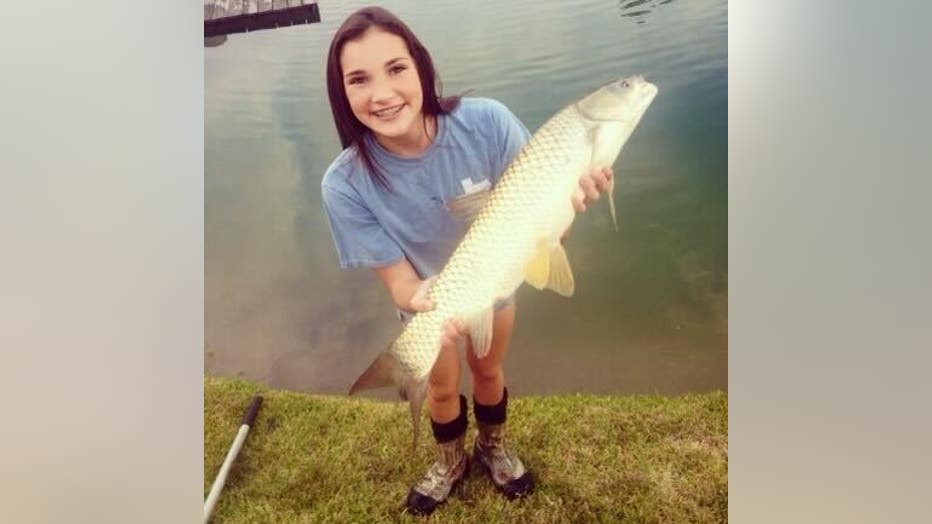Understanding teen suicide, how parents can recognize the signs

Mother hopes to spread awareness about teen suicide
FOX 26 Anchor Rashi Vats spoke with her about what she's doing to increase awareness regarding teen suicide.
HOUSTON - Often times when we hear about suicide, the signs go unnoticed until it's too late. And according to the CDC, suicide specifically in teenagers since is the second leading cause of death for people ages 10-14.
SUGGESTED: Hotlines, resources for suicide prevention, crisis support
For teenagers like Cassidy Hess, based on her photos it seemed like life could not be better.

(Photo courtesy of Kim Hess - Shared with permission)
Tragically, She took her own at just 16 years old in December 2015.

(Photo courtesy of Kim Hess - Shared with permission)
"We are in the Woodlands area, and so we live in this number one place to raise your family and everything and this great place where no one thinks that this is going to happen to their child, and it’s probably what other family assumes, certainly our family did," said Kim Hess, Cassidy’s mother. "She was happy. She didn’t show any of those signs of what you would think a suicide victim may be showing."

Understanding teen suicide, what signs parents should lookout for
Kim Hess lost her daughter Cassidy when she was just 16-years-old. To make sure this tragedy does not happen to any other family in their community, the Hess family created a nonprofit called the Cassidy Joined for Hope Foundation, focusing on teen suicide prevention in schools and the community.
"She wasn’t depressed, she wasn’t unhappy. She was opposite of all that," Hess continued. "She was a cheerleader, she was plugged into her youth group at church. She was always the person that would always make you laugh and smile."
RELATED: Common mental health conditions and how to recognize them
In the aftermath of Cassidy's death, Hess says life hasn't been easy for them.
"You have to always live wondering why and what could you have done to prevent it," she said. "What signs did you not see? So it has a ripple effect on the entire family."
`
To make sure this tragedy does not happen to any other family in their community, the Hess family created a nonprofit called the Cassidy Joined for Hope Foundation. The focus is on teen suicide prevention in the schools and community.
"If you just notice that they are just not acting right, sometimes it is so hard for them to come out and communicate with you," Hess said. "That was our problem with Cassidy. She didn’t like to talk about her feelings. Trying to get her to talk to me sometimes about, things that are important, was like pulling teeth. She just buried it all in and kept it all in, and I think that silence is ultimately what made her lose hope."
SEE ALSO: Apps for mental health, wellness, mindfulness & building healthy habits
She encourages parents to keep a constant conversation with their kids with no judgment. For those families who have lost a loved one, she suggests counseling.
"Keep looking until you find the right one that is right for not just you and your husband, but your children also because that is an integral part of the whole grieving process and the healing process," Hess concluded.

Mental Health Awareness Month: Teen mental health challenges due to social media
A growing number of teenagers are suffering from some sort of mental health crisis. Even more alarming is that many aren't getting the help they need and some are turning to social media instead of talking with their parents about it. FOX 26's Damali Keith spoke with a psychologist from the Texas Children's Hospital and went to the Texas Medical Center where the issue is getting some serious attention.
Contact the 988 Suicide and Crisis Lifeline if you are experiencing mental health-related distress or are worried about a loved one who may need crisis support.
- Call or text 988
- Chat at 988lifeline.org
- Connect with a trained crisis counselor. 988 is confidential, free, and available 24/7/365.
- Visit the 988 Suicide and Crisis Lifeline for more information at 988lifeline.org
- Non-profit honoring Cassidy Hess- https://www.cassidyjoinedforhope.com/

